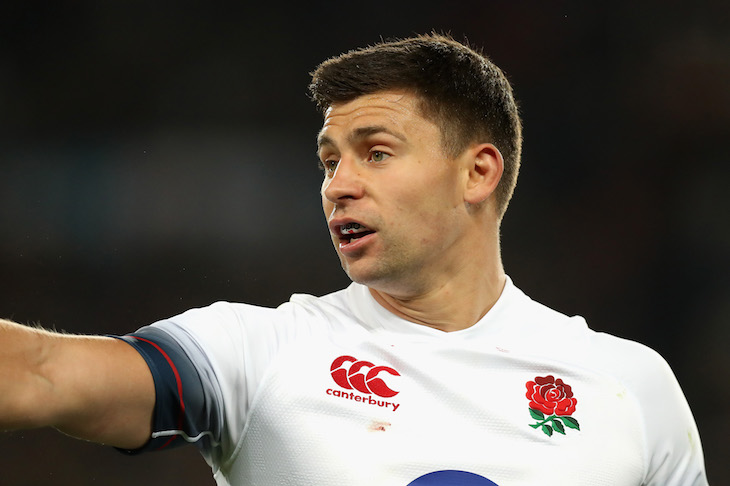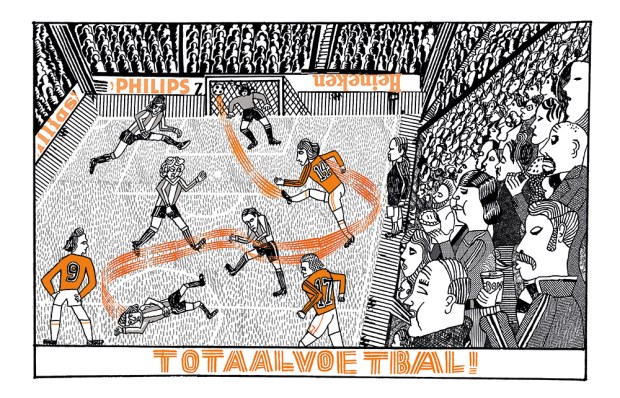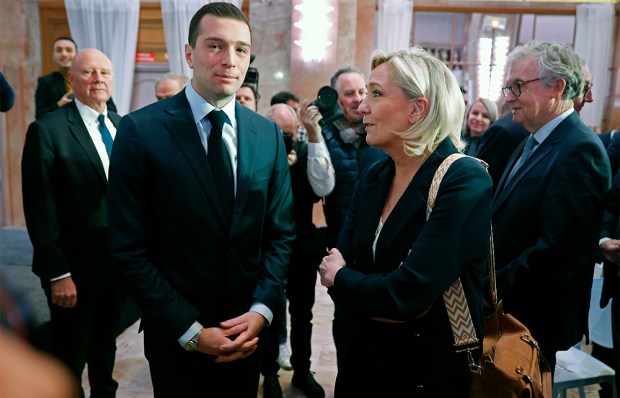Most British sports fans are familiar with the maxim that ‘football is a game for gentlemen played by hooligans, and rugby union is a game for hooligans played by gentlemen’. It was coined more than half a century ago by Arthur Tedder, then chancellor of Cambridge University, and for decades the saying stood the test of time: George Best and Gareth Edwards, Paul Gascoigne and Gavin Hastings, John Terry and Jonny Wilkinson. I rest my case.
But something strange has happened in the past season or two. This current crop of footballers, particularly the ones wearing England shirts, are polite and presentable. Not only that, but their enthusiasm for their sport is infectious and it says much about their wholesome image that the most the tabloids can reproach them for is the odd indiscreet tattoo. Yet beneath the amiable exterior is a tough inner core, as they showed when they won the penalty shootout against Colombia. ‘I’m proud of the discipline,’ said the England manager Gareth Southgate after Tuesday night’s victory. ‘We kept our composure in a really difficult environment… and in a big game, that was impressive from a young group of players.’
In contrast, the England rugby squad are a sullen and joyless bunch. During the recent tour to South Africa, two of their number were involved in what the BBC described as a ‘post-match confrontation’ with fans after losing the second Test match, while Ben Youngs — one of the most experienced members of the squad — stormed away in a sulk from a live television interview after one question. Two of this season’s squad have been convicted of drink-driving and the captain, Dylan Hartley, the man supposed to lead by example, has been banned for a total of 60 weeks in the course of his career for biting, punching, eye-gouging, verbally abusing a referee, elbowing and headbutting. Harry Kane, the clean-living captain of the England football team, who avoids nightclubs and alcohol, has never been sent off for England or Tottenham.
Before I go any further I should point out that rugby is ‘my sport’. I spent 25 years playing the game, I broke bones, tore ligaments and collected an impressive cauliflower ear for the cause. But I barely recognise rugby union today. It has become a nasty, dangerous, gladiatorial sport, played by men with too much muscle and too little skill.
This brutishness is reflected in many of the players’ personalities. There’s always been a touch of roguishness to rugby and, yes, sometimes that behaviour has gone too far. During the 1968 British Lions tour to South Africa, for example, a group of players were nicknamed ‘the Wreckers’ because of what they did to their hotel rooms. But such behaviour was rare and it was indulged because of the players’ exemplary behaviour on the pitch; referees were respected, their decisions obeyed, and the game was hard but fair.
Most players today go straight from school into professional rugby, and therefore haven’t the well-rounded backgrounds of their amateur predecessors. What they do have, however, is a handsome salary, and this has turned many into strapping spoiled brats. Tune into a Test match or any top-flight club game and you’ll see what I mean. The referee’s decisions are constantly queried with whining insolence while touch judges are subjected to bolshy gesticulations or looks of snarling contempt. This disrespect is filtering down to the amateur ranks and in the past year alone two referees have been assaulted by players.
Rugby has always had its fair share of the ‘dark arts’, crafty players who pushed the rules of the game to their limits, but in recent years we’ve seen the emergence of cynical and spiteful gamesmanship: players diving or feigning injury in an attempt to have an opponent sent off and even the brandishing of imaginary cards in the hope it will prompt the referee to reach into his pocket for a real one. True, the mass brawls that sometimes disfigured rugby in the 1970s and 1980s are a thing of the past. Nowadays players just push, shove and swear at each other (this season the captain of France, Mathieu Bastareaud, was caught on camera calling an opponent a ‘fucking faggot’) and the real fighting is saved for after the game.
In recent years, international players from Wales, England, New Zealand, Scotland, Australia and Samoa have been arrested for violent off-field incidents, from assaulting a female police officer to a drunken attack on a man outside a takeaway restaurant. In 2017 two members of the All Blacks side who won the 2011 World Cup, Dan Carter and Ali Williams, were found guilty of drink-driving and buying cocaine respectively.
Nothing, however, is as sordid as the trial earlier this year in Belfast of two Ireland internationals. The pair were eventually found not guilty of rape after a lengthy trial during which, according to the Irish Times, their ‘horrific sexism’ was laid bare. The players were sacked by their club, Ulster, because of the disrepute they had brought upon its name, but were soon signed by other clubs; that’s modern rugby, a sport once synonymous with sporting a black eye is now better known for turning a blind eye.
You wouldn’t know it, though, listening to most people involved in the sport. Rugby drips with self-righteousness from the top down. World Rugby, the sport’s governing body, lists integrity, passion, solidarity, discipline and respect as its five core values, boasting that they ‘preserve rugby’s unique character and ethos both on and off the field of play’. Rugby union doesn’t have a monopoly on character and ethos: just ask the England football team.
Will Greenwood, a World Cup winner with England in 2003 and now an insightful TV rugby pundit, wrote in the Daily Telegraph at the start of this year that a part of him would be relieved if his children didn’t want to play senior rugby. So would I. But while Greenwood is fearful of the sport’s physicality, for me it’s the vulgarity. That’s why when I go to the park for a kickabout with my daughter, the ball is a round one.
Got something to add? Join the discussion and comment below.
Get 10 issues for just $10
Subscribe to The Spectator Australia today for the next 10 magazine issues, plus full online access, for just $10.
You might disagree with half of it, but you’ll enjoy reading all of it. Try your first month for free, then just $2 a week for the remainder of your first year.















Comments
Don't miss out
Join the conversation with other Spectator Australia readers. Subscribe to leave a comment.
SUBSCRIBEAlready a subscriber? Log in